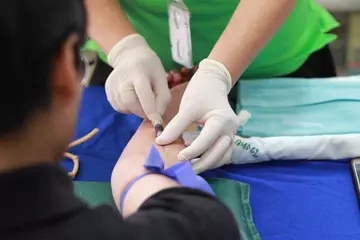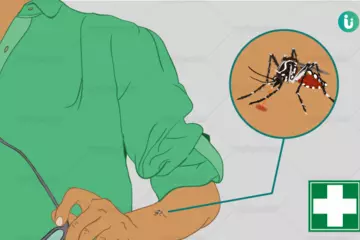Summary
Herpes is a viral infection caused by the herpes simplex virus. There are two kinds of herpes simplex virus- herpes simplex virus 1 (HSV 1) and herpes simplex virus 2 (HSV 2). HSV-1 is responsible for oral and genital infections, whereas, HSV-2 is primarily responsible for genital infections. The virus generally affects the mucosal surfaces of the body such as the mouth, the anal and genital region, and the skin in other parts of the body. Herpes is a long-term medical condition that has no cure. Many people with herpes never show any symptoms even though they are carrying the infection. Others show symptoms such as blisters, ulcers and cold sores and may experience pain while urinating or notice a white genital discharge if they have genital HSV. Though herpes has no cure, medications help to relieve the symptoms. Generally, herpes responds very well to treatment and does not cause any complications. Complications of herpes can occur in infants or in people having a compromised immune system.

 Doctors for Herpes
Doctors for Herpes  OTC Medicines for Herpes
OTC Medicines for Herpes
 Lab tests for Herpes
Lab tests for Herpes Herpes articles
Herpes articles
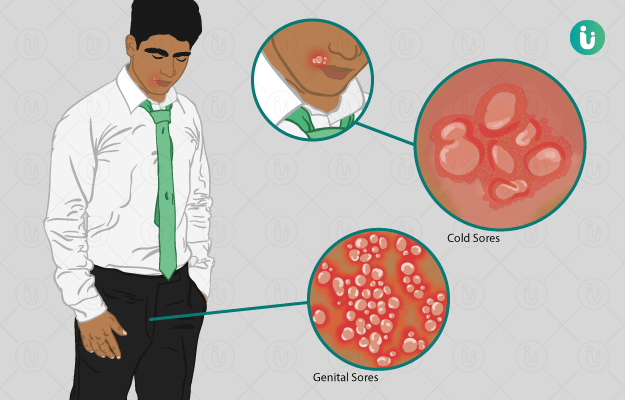
 Ayurvedic Treatment of Herpes
Ayurvedic Treatment of Herpes
 Diet for Herpes
Diet for Herpes
 Home Remedies for Herpes
Home Remedies for Herpes
 Homeopathic Treatment of Herpes
Homeopathic Treatment of Herpes
































 Editorial Team
Editorial Team

 Dt. Akanksha Mishra
Dt. Akanksha Mishra
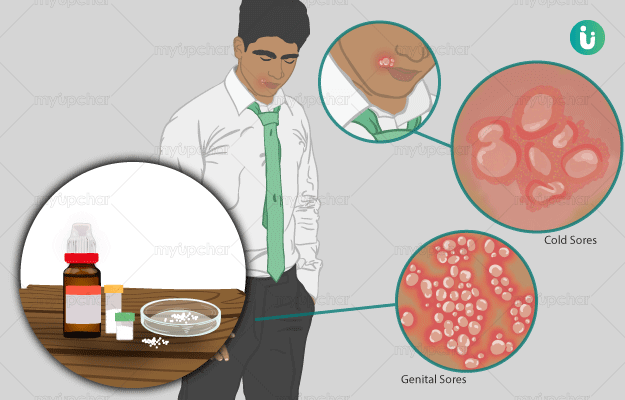
 Dr. Rachita Narsaria
Dr. Rachita Narsaria
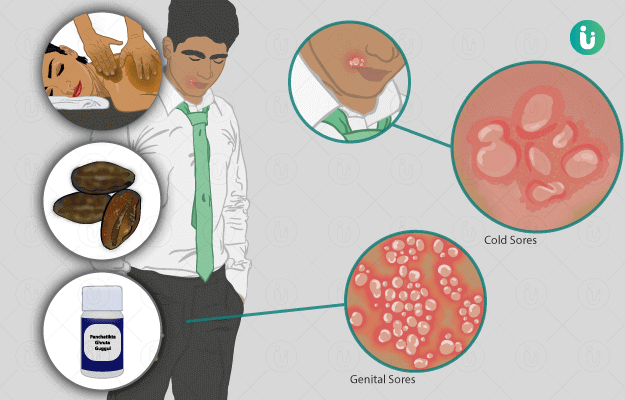
 Dr. Laxmidutta Shukla
Dr. Laxmidutta Shukla




